Rifadin Capsules – Rifampicin Capsules, 100 Capsules
Rifadin Capsules – Rifampicin Capsules is available in 2 strengths:
- Rifadin 150mg Capsules – Rifampicin 150mg Capsules
- Rifadin 300mg Capsules – Rifampicin 300mg Capsules
£110.50 – £184.50
CompareCompare- Rifadin 150mg Capsules - Rifampicin 150mg Capsules
- Rifadin 300mg Capsules - Rifampicin 300mg Capsules
- Description
- Additional Information
- Brand
- How To Use
- Product Details
- Side Effects
- Ingredients
- How to Store
- Patient Information leaflet
- Reviews (6)
- Questions & Answers
Rifadin Capsules – Rifampicin Capsules, 100 Capsules
Introducing Rifadin Capsules – Rifampicin Capsules, your trusted ally in fighting bacterial infections effectively.
Rifadin Capsules contain the potent medicine rifampicin, a stalwart member of the anti-bacterial family. With its targeted action, it swiftly eradicates the bacteria responsible for various infections, ensuring a swift recovery and restored well-being.
Indicated for a spectrum of bacterial infections, Rifadin Capsules are your comprehensive solution for tackling ailments such as tuberculosis (TB), leprosy, brucellosis, Legionnaires Disease, Haemophilus Influenzae, and other serious bacterial infections. Additionally, it’s instrumental in preventing the onset of meningitis and Haemophilus Influenzae in children aged 4 years or younger, safeguarding their health proactively.
Available in two strengths for tailored treatment: Rifadin 150mg Capsules – Rifampicin 150mg Capsules and Rifadin 300mg Capsules – Rifampicin 300mg Capsules, our product caters to diverse medical needs with precision and efficacy.
For those who find swallowing capsules challenging or when rifampicin is prescribed for children, Rifadin is also available in a convenient syrup form, ensuring ease of administration without compromising on effectiveness.
Not just limited to human use, Rifampicin capsules have found their place in veterinary medicine, providing invaluable support in treating certain infections in foals, horses, cats, and dogs, offering a lifeline to our beloved animal companions.
Trust Rifadin Capsules – Rifampicin Capsules to combat infections effectively, restoring health and vitality with every dose.
Rifadin Capsules Reviews
After using Rifadin Capsules, it’s helpful to let others know about your experience. Reviews of an item help other users know that medicines received have helped the condition it is claimed for, how well the treatment worked or any issues to be aware of. We invite our users to leave a review of both their treatment and of the service provided. Click on the reviews tab to see if there has been feedback on this item.
What is the price of Rifadin Capsules?
The price of Rifadin Capsules starts from £110.50
Where can you buy Rifadin Capsules?
You can buy Rifadin Capsules at Dock Pharmacy Essex UK, UK Online Pharmacy.
Can you buy Rifadin Capsules Over the counter?
Rifadin Capsules is not available to buy over the counter. You need a prescription to buy Rifadin Capsules from Dock pharmacy. You can find more information about how to obtain the medication here:
Disclaimer: This product description is provided for informational purposes only. It is not a substitute for professional medical advice, diagnosis, or treatment. Always seek the advice of your physician or other qualified health provider with any questions you may have regarding a medical condition
Dock Pharmacy
128 Dock Road, Tilbury, Essex, RM18 7BJ
Tel: 01375846316
| Brand | |
|---|---|
| Strength | Rifadin 300mg Capsules, Rifadin 150mg Capsules |
Brand
RIFADIN
How To Use
How to take Rifadin Capsules
Always take Rifadin Capsules exactly as your doctor has told you.
You should check with your doctor or pharmacist if you are not sure.
Rifadin is also available as a syrup for children.
Keep taking this medicine
- You must take the capsules each day for the whole time the doctor has told you to take them
- Do not stop and start taking the capsules.
This may increase the risk of side effects and your infection will not be treated properly
How to take the capsules
- Take this medicine by mouth
- Swallow the capsules whole, with a drink of water
- Take at least 30 minutes before a meal or 2 hours after a meal.
- If you feel the effect of your medicine is too weak or too strong, do not change the dose yourself, but ask your doctor
Product Details
What you need to know before you take Rifadin Capsules
Do not take Rifadin Capsules if: Í You are allergic (hypersensitive) to – rifampicin – any of the other ingredients of the Rifadin Capsules (see Section 6) Signs of an allergic reaction include: a rash, swallowing or breathing problems, swelling of your lips, face, throat or tongue Í You have yellowing of the skin and eyes (jaundice) Í You are taking saquinavir or ritonavir for an HIV infection (see ‘Other medicines and Rifadin Capsules’ below) Do not take if any of the above apply to you. If you are not sure, talk to your doctor or pharmacist before taking Rifadin Capsules. Warnings and precautions Talk to your doctor or pharmacist before taking Rifadin Capsules if: p You have liver problems p You have any kidney problems and if you are having more than 600mg rifampicin per day p You have diabetes. Your diabetes may become more difficult to control while taking this medicine p You feel numb or weak in your arms and legs (peripheral neuropathy) p You are under weight or malnourished p You have a rare blood problem called ‘porphyria’ pYou have a problem with bleeding or a tendency to bruise easily p You have a history of lung inflammation (interstitial lung disease/pneumonitis) pYour symptoms of tuberculosis return or get worse (see section 4 Possible side effects) p You develop a rash or experience any symptoms of thrombotic microangiopathy during your treatment (see section 4 Possible side effects) p You wear contact lenses. Taking Rifadin Capsules may permanently stain soft contact lenses p The person taking this medicine is a child p You are aged 65 years or older If you are not sure if any of the above apply to you, talk to your doctor or pharmacist before taking Rifadin Capsules. Lung inflammation Inform your doctor immediately while taking this medicine if you develop new or sudden worsening of shortness of breath, possibly with a dry cough or fever not responding to antibiotic treatment. These could be symptoms of lung inflammation (interstitial lung disease/pneumonitis) and can lead to serious breathing problems due to collection of fluid in the lungs and interfere with normal breathing which can lead to life threatening conditions. Liver problems You should not take rifampicin, a component of Rifadin Capsules, if you have previously taken any rifampicin containing medicinal product and had liver problems. If you are unsure talk to your doctor. Inflammation of the liver has been reported in patients taking rifampicin with symptoms developing within a few days to a few months following the start of treatment. Stop using rifampicin and contact a doctor if you have symptoms of liver problems (see section 4 Possible side effects). Serious skin reactions Serious skin reactions including Stevens-Johnson syndrome (SJS), toxic epidermal necrolysis (TEN), drug reaction with eosinophilia and systemic symptoms (DRESS), acute generalized exanthematous pustulosis (AGEP) have been reported with the use of Rifadin Capsules. • SJS/TEN can appear initially as reddish target spots or circular patches often with central blisters on the trunk. Also, ulcers of mouth, throat, nose, genitals and eyes (red and swollen eyes) can occur. These serious skin rashes are often preceded by fever and/or flu-like symptoms. The rashes may progress to widespread peeling of the skin and life-threatening complications or be fatal. • DRESS appears initially as flu-like symptoms and a rash on the face then an extended rash with a high body temperature, increased levels of liver enzymes seen in blood tests and an increase in a type of white blood cell (eosinophilia) and enlarged lymph nodes. • AGEP appears at the initiation of treatment as a red, scaly widespread rash with bumps under the skin and blisters accompanied by fever. The most common location: mainly localized on the skin folds, trunk, and upper extremities. The highest risk for occurrence of serious skin reactions is within 2 days to 2 months after treatment initiation depending on the condition. If you develop a serious rash or another of these skin symptoms, stop taking Rifadin Capsules and contact your doctor or seek medical attention immediately. Blood Tests Your doctor will need to check your blood before you take this medicine. This will help your doctor know if any changes happen to your blood after taking this medicine. You may also need to have regular blood tests to check how your liver is working. Other medicines and Rifadin Capsules Tell your doctor or pharmacist if you are taking, have recently taken or might take any other medicines. This includes medicines you buy without a prescription, including herbal medicines. This is because Rifadin Capsules can affect the way some other medicines work. Also, some medicines can affect the way Rifadin Capsules work. In particular, do not take this medicine, and tell your doctor, if you are taking: • Saquinavir or ritonavir used for HIV infection The following medicines can make Rifadin Capsules work less well: • Antacids used for indigestion. Take Rifadin Capsules at least 1 hour before taking antacids • Other medicines used for TB such as P-aminosalicyclic acid (PAS). PAS and Rifadin Capsules should be taken at least 8 hours apart Tell your doctor if you are taking any of the following medicines: Heart and blood medicines • Medicines for high blood pressure • Medicines for heart problems or to control your heartbeat • Medicines used to thin the blood such as warfarin and clopidogrel • Medicines used to lower cholesterol • Water tablets (diuretics) such as eplerenone Mental health, epilepsy and motor neurone medicines • Medicines for thought disorders known as ‘antipsychotics’ such as haloperidol • Medicines to calm or reduce anxiety (hypnotics, anxiolytics) • Medicines to help you sleep (barbiturates) • Medicines used for epilepsy such as phenytoin • Some medicines used for depression such as amitriptyline and nortriptyline • Riluzole – used for motor neurone disease Medicines for infections and the immune system • Some medicines used for viral infections such as indinavir, efavirenz, amprenavir, nelfinavir, atazanavir, lopinavir, neviparine, daclatasvir, simeprevir, sofosbuvir and telaprevir • Medicines used for fungal infections • Medicines used for bacterial infections (antibiotics) • Dapsone (an antibiotic) with rifampicin may cause haematological toxicity including a decrease in bone marrow and blood cells, and methaemoglobinaemia (decrease in oxygen in your blood caused by changes in red blood cells) • Medicines used for lowering your immune system such as ciclosporin, sirolimus and tacrolimus • Praziquantel – used for tapeworm infections • Atovaquone – used for pneumonia Hormone and cancer medicines • Some hormone medicines (oestrogen, systemic hormones, progestogens) used for contraception or some types of cancer such as ethinyloestradiol, levonorgestrel or dydrogesterone • Some hormone medicines (anti-oestrogens) used for breast cancer or endometriosis such as tamoxifen, toremifene and gestrinone • Some medicines used for cancer (cytotoxics) such as imatinib • Levothyroxine (thyroid hormone) used for thyroid problems • Irinotecan – used for cancer Pain, inflammation and gout medicines • Non-steroidal anti-inflammatory drugs (NSAIDS) such as etoricoxib, aspirin and indomethacin • Medicines used for pain such as codeine, morphine, fentanyl or pethidine • Paracetamol and rifampicin can increase the risk of liver damage • Corticosteroids used for inflammation such as hydrocortisone, betamethasone and prednisolone • Methadone – used for heroin withdrawal Other medicines • Medicines used for diabetes • Medicines used to relax muscles before surgery (anaesthetics) such as halothane • Some medicines used for feeling sick or being sick such as ondansetron and aprepitant • Other antibiotic medicines such as cefazolin • Quinine – used for malaria • Theophylline – used for wheezing or difficulty in breathing Taking Rifadin Capsules with food and drink Take Rifadin Capsules on an empty stomach. This means at least 30 minutes before food or 2 hours after food. Pregnancy and breast-feeding Talk to your doctor before taking this medicine if you are pregnant, plan to get pregnant or think you are pregnant. Rifadin Capsules may make the contraceptive “pill” work less well. This means you should change to a different type of contraception. Instead, you must use a reliable barrier method of contraception such as condoms or the “coil” while taking Rifadin Capsules. If you have any questions or are unsure about this talk to your doctor or pharmacist. You should not breast-feed if you are taking Rifadin Capsules. This is because small amounts may pass into the mothers’ milk. If you are breastfeeding or planning to breast-feed, talk to your doctor or pharmacist before taking any medicine.
Driving and using machines You may feel dizzy or faint, have problems with vision or have other side effects that could affect your ability to drive while taking this medicine. If this happens, do not drive or use any tools or machines
Side Effects
Possible side effects
Like all medicines, Rifadin Capsules can cause side effects, although not everybody gets them. Stop taking and go to a hospital straight away if you notice any of the following serious side effects: • You have an allergic reaction. The signs may include: a rash, swallowing or breathing problems, wheezing, swelling of your lips, face, throat or tongue. • Nausea (feeling sick) or vomiting (being sick), fever, feeling tired, loss of appetite (anorexia), dark-coloured urine, light coloured faeces, yellowing of the skin or whites of the eyes, itching, rash or upper stomach pain. These symptoms may be signs of liver injury. • Serious skin rashes including Steven-Johnson syndrome, toxic epidermal necrolysis. These can appear as reddish target-like macules or circular patches often with central blisters on the trunk, skin peeling, ulcers of mouth, throat, nose, genitals and eyes and can be preceded by fever and flu-like symptoms. See also section 2. • Widespread rash, high body temperature, liver enzyme elevations, blood abnormalities (eosinophilia), enlarged lymph nodes and other body organs involvement (Drug Reaction with Eosinophilia and Systemic Symptoms which is also known as DRESS or drug hypersensitivity syndrome). See also section 2. • A red, scaly widespread rash with bumps under the skin and blisters accompanied by fever at the initiation of treatment (acute generalized exanthematous pustulosis). See also section 2. • You bruise more easily than usual. Or you may have a painful rash of dark red spots under the skin which do not go away when you press on them (purpura). This could be because of a serious blood problem. • You have severe bleeding (haemorrhage). • Paradoxical drug reaction – Symptoms of tuberculosis can return, or new symptoms can occur after initial improvement during treatment. Paradoxical reactions have been reported as early as 2 weeks and as late as 18 months after beginning anti-tuberculosis treatment. Paradoxical reactions are typically associated with fever, swollen lymph nodes (lymphadenitis), breathlessness, and cough. Patients with paradoxical drug reaction can also experience headaches, loss of appetite, and weight loss. • You have chills, tiredness, unusually pale skin colour, shortness of breath, fast heartbeat or dark-coloured urine. This could be signs of a serious type of anaemia. • You have blood in your urine or an increase or decrease in amount of urine you produce. You may also get swelling, especially of the legs, ankles or feet. This may be caused by serious kidney problems. • You have a sudden severe headache. This could be a sign of bleeding in the brain. • New or sudden worsening of shortness of breath and wheezing, possibly with a cough or fever. These could be symptoms of inflammation of the lungs (interstitial lung disease/pneumonitis). • You get confused, sleepy, cold clammy skin, shallow or difficult breathing, a racing heartbeat or your skin is paler than normal. These could be signs of shock. • You get more infections more easily than normal. Signs include fever, sore throat or mouth ulcers. This could be because you have a low number of white blood cells. • You have bleeding from your nose, ear, gums, throat, skin or stomach. Signs may include a feeling of tenderness and swelling in your stomach, purple spots on your skin and black or tar-like stools. • Mental problems with unusual thoughts and strange visions (hallucinations). • Severe watery diarrhoea that will not stop and you are feeling weak and have a fever. This may be something called ‘Pseudomembranous colitis’. • Flu-like symptoms including chills, fever, headache, dizziness and bone pains. • Inflammation of the liver – yellowing of the skin and white part of eyes, increase in the blood level of liver enzymes. • Blood clots in small blood vessels (thrombotic microangiopathy) – Symptoms may include increased bruising, bleeding, fever, extreme weakness, headache, dizziness or light-headedness. Your doctor may find changes in your blood and the function of your kidneys. Tell your doctor as soon as possible if you have any of the following side effects: • Water retention (oedema) which may cause swollen face, stomach, arms or legs. • Muscle weakness or pain or loss of muscle reflexes. • Dizziness, feel lightheaded and faint especially when you stand or sit up quickly (due to low blood pressure). • Swollen fingers, toes or ankles. • Being unable to concentrate, feeling nervous, irritable or depressed. • Feeling very tired and weak or difficulty sleeping (insomnia). • Short-term memory loss, anxiety, being less alert or responsive. • Wasting of muscles or other body tissues. • Weight loss, night sweats and fever. These could be signs of a blood condition called eosinophilia. • Feeling sick (nausea) or being sick (vomiting). Tell your doctor or pharmacist if any of the following side effects get serious or lasts longer than a few days: • Skin flushing or itching. • Irregular periods. • Diarrhoea or stomach discomfort. • Loss of appetite (anorexia). • Headache. Other side effects you should discuss with your doctor if you are concerned about them You notice a discolouration (yellow, brown, orange or red colour) in your teeth, urine, sweat, phlegm (sputum), saliva or tears. This is quite common, and you need not worry. However, the colour may permanently stain soft contact lenses. The colour in tears may last for some time after you have stopped having Rifadin Capsules. Blood tests • A blood test may show changes in the way the liver is working. Reporting of side effects If you get any side effects, talk to your doctor, pharmacist or nurse. This includes any possible side effects not listed in this leaflet. You can also report side effects directly via the Yellow Card Scheme at: www.mhra.gov.uk/yellowcard or search for MHRA Yellow Card in the Google Play or Apple App Store. By reporting side effects you can help provide more information on the safety of this medicine
Ingredients
What Rifadin Capsules contain:
- Each capsule contains 300mg of the active ingredient, rifampicin.
Each capsule contains 150mg of the active ingredient, rifampicin
- The other ingredients are corn starch and magnesium stearate. The capsules contain gelatin, erythrosine, indigotine and titanium dioxide.
How to Store
How to store Rifadin Capsules
Keep this medicine out of the sight and reach of children. Do not use Rifadin Capsules after the expiry date which is stated on the carton and blister packs after EXP. The expiry date refers to the last day of that month. Store below 25°C. Do not throw away any medicines via wastewater or household waste. Ask your pharmacist how to throw away medicines you no longer use. These measures will help protect the environment
Patient Information leaflet
Click here for the Patient Information leaflet
Please read before using the product
Only logged in customers who have purchased this product may leave a review.
Questions and answers of the customers
There are no questions yet, be the first to ask something for this product.
You Might Also Like
Rifadin Syrup – Rifampicin 100mg/5ml Syrup, 120ml Introducing Rifadin Syrup – Rifampicin 100mg/5ml Syrup, your trusted ally in fighting bacterial infections effectively. This oral suspension is meticulously formulated to combat a range of bacterial ailments, ensuring optimal health and well-being. Key Features: Versatile Treatment: Rifadin Syrup is specially designed to tackle various bacterial infections, including […]
Learn More£8.50
- Availability: in stock
Strength: Rifampicin 300mg Capsules
Learn More£185.60
- Availability: in stock
Strength: Rifampicin 150mg Capsules
Learn More£112.50
- Availability: in stock
Other Products From This Seller
- Validated for 2-8°C for 30 to 36 hrs*
- Perfect for long-haul flights
- Carries pens, bottles, vials and syringes
- Manufactured from excellent quality materials
£102.50
- Availability: in stock
- Validated for 2-8°C for 18 to 24hrs*
- Perfect for long haul flights
- Carries pens, bottles, vials and syringes
- Integrated digital thermometer
- Manufactured from excellent quality materials
£69.45
- Availability: in stock
- Validated for 2-8°C for 15 to 20hrs*
- Perfect for long haul flights
- Carries pens, bottles, vials and syringes
- Integrated digital thermometer
- Manufactured from excellent quality materials
£54.50
- Availability: in stock
Steglatro Tablets – Ertugliflozin Tablets available in 2 strengths:
- Steglatro 5mg Tablets – Ertugliflozin 5mg Tablets
- Steglatro 15mg Tablets – Ertugliflozin 15mg Tablets
£49.50
- Availability: in stock
Original price was: £43.20.£39.50Current price is: £39.50.
Ursodeoxycholic Acid Tablets 250mg – Cholurso Tablets, 60 Tablets Introducing Cholurso Tablets the brand name of Ursodeoxycholic Acid Tablets 250mg – Your Solution for Gallstone Management and Liver Health Ursodeoxycholic Acid 250mg Tablets is a cutting-edge pharmaceutical formulation designed to positively influence bile composition, making it a versatile solution for various health concerns. Ursodeoxycholic Acid, […]
Learn MoreOriginal price was: £43.20.£39.50Current price is: £39.50.
- Availability: in stock
£156.00 – £210.00
Please note you need insulin pen needles to use Mounjaro Injection
Mounjaro Injection – Tirzepatide Injection, 4 Pre-filled Pens
Available in 6 strengths:
- Mounjaro 2.5mg Injection
- Mounjaro 5mg Injection
- Mounjaro 7.5mg Injection
- Mounjaro 10mg Injection
- Mounjaro 12.5mg Injection
- Mounjaro 15mg Injection
Learn More
£156.00 – £210.00
- Availability: in stock
Timoptol LA Gel – Timolol Eye Gel is available in 2 strengths
- Timoptol LA 0.5% Gel
- Timoptol LA 0.25% Gel
£7.50
- Availability: in stock
Original price was: £43.50.£39.75Current price is: £39.75.
One-Alpha Drops 2mcg/1ml – Alfacalcidol Drops 2mcg/1ml
Learn MoreOriginal price was: £43.50.£39.75Current price is: £39.75.
- Availability: in stock
Original price was: £5.99.£5.39Current price is: £5.39.
Ideal for irrigating and cleansing the eye, or a wound
Learn MoreOriginal price was: £5.99.£5.39Current price is: £5.39.
- Availability: in stock
Ultimate Surefit Erection Ring Set 15222 – Constrictor Rings For Erectile Dysfunction Experience Confidence and Pleasure with the Ultimate Surefit maintenance ring set – Your Key to Intimate Well-being Introducing the Ultimate Surefit Erection Ring, a premium solution meticulously designed for those seeking to overcome the challenges of erectile dysfunction. Crafted with precision and comfort […]
Learn More£58.50
- Availability: in stock













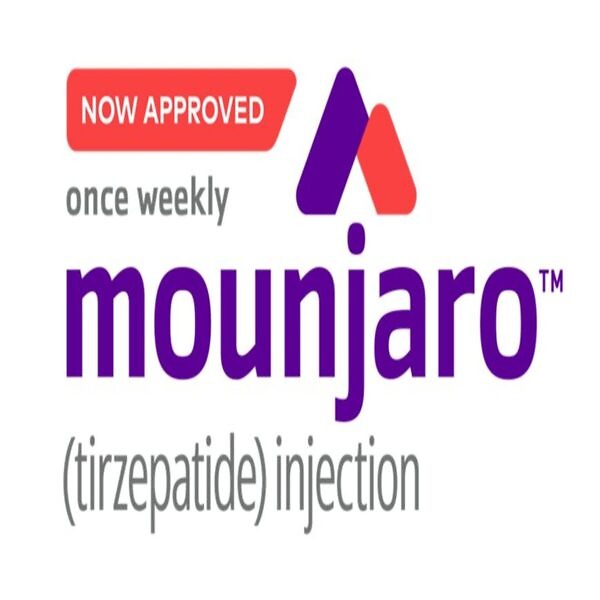


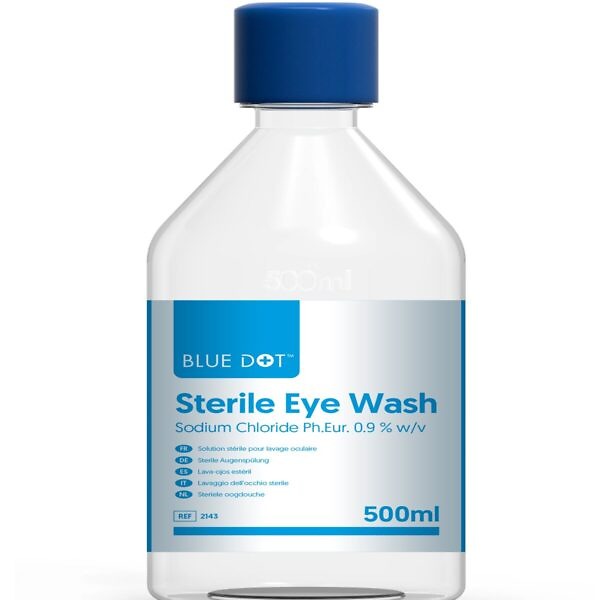
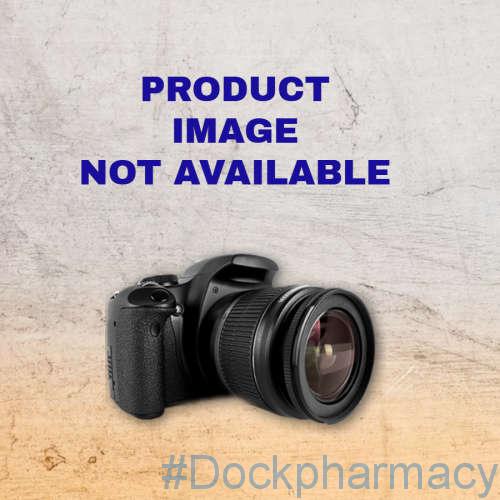
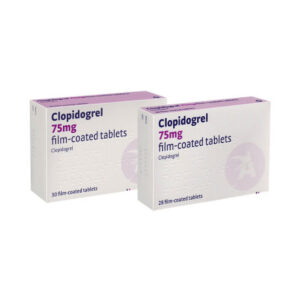
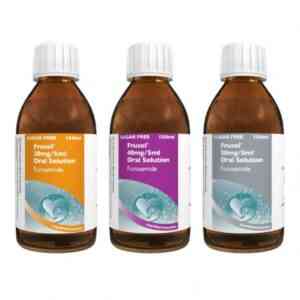
6 reviews for Rifadin Capsules – Rifampicin Capsules, 100 Capsules
There are no reviews yet.